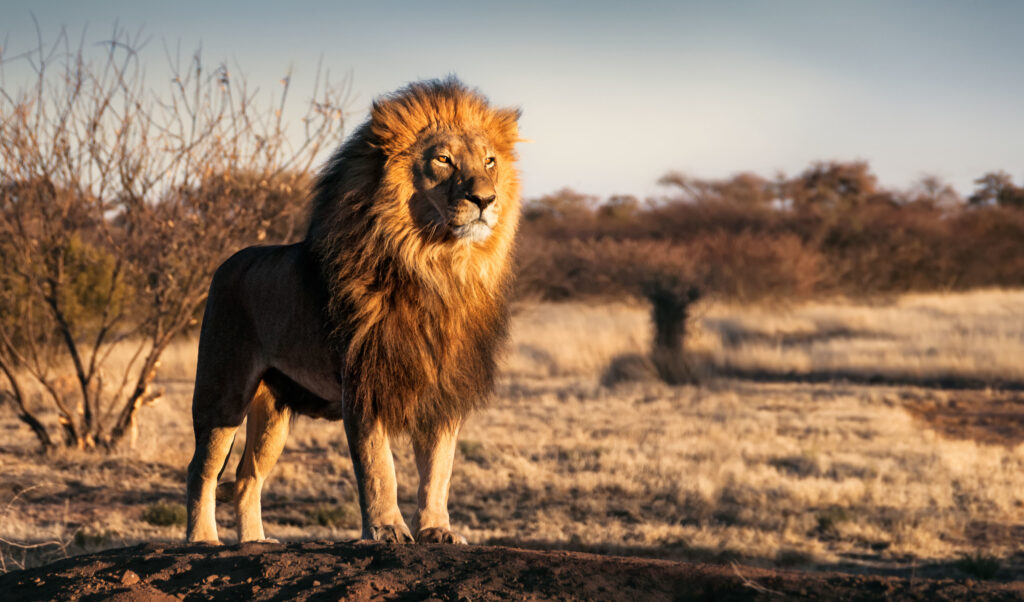Lions live in a hot climate and are found in the African savanna regions where there are distinct wet and dry seasons. Lions usually hunt at night and their prey include antelops, zebras, rhinos, hippos, wild hogs, crocodiles and giraffes. The food they eat is slowly vanishing which make it harder for lions to find food for their pride, and some lions starve to death because of this.
Lions play an important role in the food chain: they help regulate numbers of the more dominant herbivore species, such as zebra and buffalo. Without lions to control them, these species can out-compete other animals, causing their extinction and reducing biodiversity.
One of the main reasons why lions are disappearing is that their homes are being destroyed. As the human population increases, these lion habitats are destroyed in order to create more homes and buildings for people. Without an area to call home, endangered lions often die off, leading to their inevitable extinction.
We are losing this iconic species in most of its range. Only two centuries ago, hundreds of thousands of lions inhabited Africa. Today there are perhaps 20,000 lions, which only live in 8 percent of their former range.
There is still a chance to save lions by joining and supporting organizations that help their habitat. Panthera, a big-cat conservation organization hires locals to protect both livestock and lions.
The most magestic animal on Earth deserves to be preserved, and live on as the king of the jungle.

Illegal killing of Cecil the Lion
In June of 2015, Dr. Walter J. Palmer, an American dentist from Minnesota repotedly paid $50,000USD to enable him to illegally hunt and kill a lion.
Cecil was a 13 year-old lion who lived primarily in Hwange National Park in Zimbabwe. He was a major attraction of the park, and was being studied and tracked by a researcher team of the University of Oxford as part of a long-term study. This is how Cecil gained popularity.
Palmer shot and wounded Cecil with an arrow on a trip to Zimbabwe. About 10-12 hours after, he shot him with a second arrow, leading to the lions death. Cecil’s body was then skinned, his head was removed, and his body was photographed as a trophy on Palmer’s social media accounts.
Palmer illegally killed Cecil on land where trophy hunting was banned. Although he escaped trouble with the law because his personal papers seemed to be in order, the killing of the lion created an outrage overseas. It promted responses from government and political officials, Palmer recieved a number of hate messages, his private details were posted online, and his property was vandalized. Cecil’s memory still lives on in the animal community.